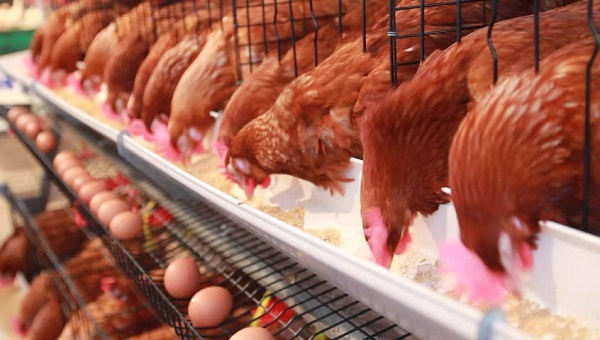Agriculture
Farmers share of the 24-hour economy

How is the NPP going to convince Ghanaians to accept that the 24-hour economy is not the panacea to the rising unemployment situation in Ghana? Press conferences upon press conferences, conjectures upon conjectures, promises upon promises and many more have not made the electorates believe the NPP’s negative painting of the 24-hour economy.
John Mahama, in the Resetting Ghana Manifesto, promises the good people of Ghana a 24-hour economy policy. To make it simple for all to understand, a well explained “Formula 1-3-3” was developed to mean “Same Job, Three Shifts, Three People. The 24-hour economy is intentioned to make the dormant night economy function. It will share one job across three shifts, and will create jobs in both private and public sectors. A job position that is traditionally occupied by one person will now be occupied by three people with each person working for 8 hours each day. Simply put, 24 hours are equally shared for three people on the same job in a structured shift system.
The aim is to stimulate economic growth by enabling extended operating hours to create more employment opportunities across various sectors of the economy such as manufacturing and production, retail, hospitality, construction, transportation, healthcare and agriculture. In ensuring economic growth in various sectors, jobs will be created, economic stability achieved and there will be general improvement in the quality of life.
To achieve this, government will provide conditions and incentives necessary for the success of a 24-hour Economy. The NDC will ensure an enhanced lighting system to ensure that power failures do not occur. Adequate security, transport, health, financial and port services will also be provided in the night and this will make workers feel safe and make private sector businesses to access government services at any time of the day.
Not all, the next John Mahama government under the 24-hour economy will provide tax incentives and create conditions for easy access to credit at very low interest rates. To back this promise, President Mahama expressly declared that he will banish the Electronic Transaction Levy (E-levy), Covid Levy, Sanitation and Pollution Levy (Borla tax) and the 10 percent Withholding Tax and several other nuisance taxes introduced by this government. A tax regime that is so simple, convenient, affordable and understandable will be introduced to make it easy for commerce including agriculture to thrive.
The interest rate regime is also killing businesses and John Mahama will further the 24-hour Economy by ensuring that we have an interest rate regime that will make Ghanaian businesses competitive. Some banks in Ghana are currently charging as high as 50 percent interest on loans. This makes foreign companies borrow at lower interest rates in their parent country and invest in Ghana thereby making Ghanaian businesses uncompetitive. For instance, interest rate in Burkina Faso is 5.5 percent.
As part of efforts to bring interest rates down, John Mahama will develop a comprehensive credit system for entrepreneurs including farmers to provide partial credit guarantees, soft loans and grants to businesses. This will make them have access to cheap finance, invest in their farms or businesses, create jobs and offer competitive prices thereby ensuring business sustainability. John Mahama will proceed to control inflation, curtailing cedi depreciation and creating market for businesses both within and outside Ghana.
The oil to lubricate the 24-hour economy is the Ghanaian farmer. Cocoa, cereals, legumes, poultry, livestock, fish and many other agricultural produce are needed as raw materials for the processing companies that will be participating in the 3-shift economy. Without these, the 24-hour economy will be lacking legs to stand on. As a way of ensuring farmers produce enough to advance the 24-hour economy, a package of incentives are contained in the Resetting Ghana Manifesto for Ghanaian farmers.
John Mahama will roll out an Agriculture for Economic Transformation Agenda (AETA). Under this programme, he will implement coordinated strategies to build a modernised agricultural economy and promote agribusinesses as key anchors of our economic transformation plan for jobs.
The vision of the AETA is to position Agriculture and Agribusiness as the central focus for economic transformation; create a robust and integrated value chain; apply innovative financing to agriculture and agribusiness; formalise and improve access to land and water for agriculture production; promote greater participation of young people and women in agriculture and reintroduce the fertiliser subsidy programme for farmers to boost food production and reduce inflation.
In furtherance of these objectives, the NDC will establish Farmer Service Centres, to support farmers with modern agriculture equipment, technologies and inputs in all agricultural districts. The NDC will also create Farm Banks within agriculture zones to ease access to land and irrigation facilities for agricultural purposes and encourage young people into farming. Technical and financial support will be provided for farmers to promote large-scale farming to increase yield and agro-processing.
John Mahama will again implement a Feed Ghana Programme (FGP) with the intention to ensure food security by promoting ‘SMART’ agriculture to boost local food production for consumption and processing. To achieve this, the next Mahama government will implement a Transformational Grains Development (TGD) Project to increase the local
production of maize, rice, soya beans, sorghum and other staples for domestic consumption and processing; improve the production of roots and tubers through investments in research and the adoption of locally manufactured and approved technology and resource research institutions to conduct basic and applied research in plant production, breeding, protection, water harvesting/conservation, climate adaptation/resilience and postharvest handling.
Several incentives are again available to cocoa, cotton, poultry, livestock, and other crop farmers and players in the agricultural sector in page 37 – 47 of the Resetting Ghana Manifesto, 2024. All these packages are put together to encourage more production with adequate and guaranteed markets for farmers and businesses.
A successful 24-hour economy is dependent on market and this will be made available to farmers, processors and all other participants in several ways. The NDC will implement a “Buy Ghana Agenda” to promote the production and consumption of made-in-Ghana goods. This will discourage our taste for foreign products like rice, chicken and even water.
To this end, President Mahama will leverage the spending power of government and prioritise the procurement of made in Ghana goods and services through a deliberate procurement policy; embark on public education campaign to re-orientate citizens to patronize made-in-Ghana products and promote market access for agro commodities through the warehouse receipt system and the Ghana Commodity Exchange;
President Mahama will also expanding access to external markets by launching an “Export Ghana Policy” to expand the market of made in Ghana goods under the African Continental Free Trade Area Agreement (AfCFTA) regime and other external trade programmes. In pursuit of this, he will promote quality assurance standards, effective branding, and marketing of Made-in-Ghana products to enhance their competitiveness in local and international markets; promote the expansion of businesses owned by Ghanaian entrepreneurs into neighbouring regions through training, strategic partnerships and networking and diversify Ghanaian exports by promoting strategic products through value addition.
The 24-hour economy is doable and the Ghanaian farmer is a certified lubricant for its success. We cannot let an opportunity like this go, especially at a time Ghana’s unemployment rate has risen to 14.7 percent, almost doubling the the 2016 figure of 8.4 percent according to the Ghana Statistical Service.
Source: Taluta Gbanha Mahama|Sissala West District





